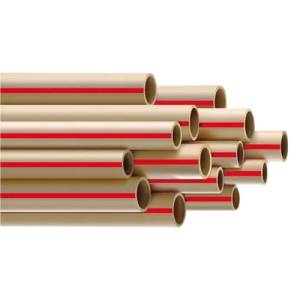
CPVC (Chlorinated Polyvinyl Chloride) pipe offers a compelling alternative to traditional metal piping systems, providing superior performance, durability, and ease of installation for a wide range of applications. This robust piping solution is ideal for hot and cold water distribution, as well as other demanding fluid transfer needs.
Key Features and Benefits:
Applications:
Specifications (Vary by Manufacturer and Schedule):
Choosing the Right CPVC Pipe:
Selecting the appropriate CPVC pipe requires considering factors such as:
Note: Always consult the manufacturer's specifications and installation guidelines for detailed information on pipe selection, installation procedures, and safety precautions. Improper installation can void warranties and compromise system performance.